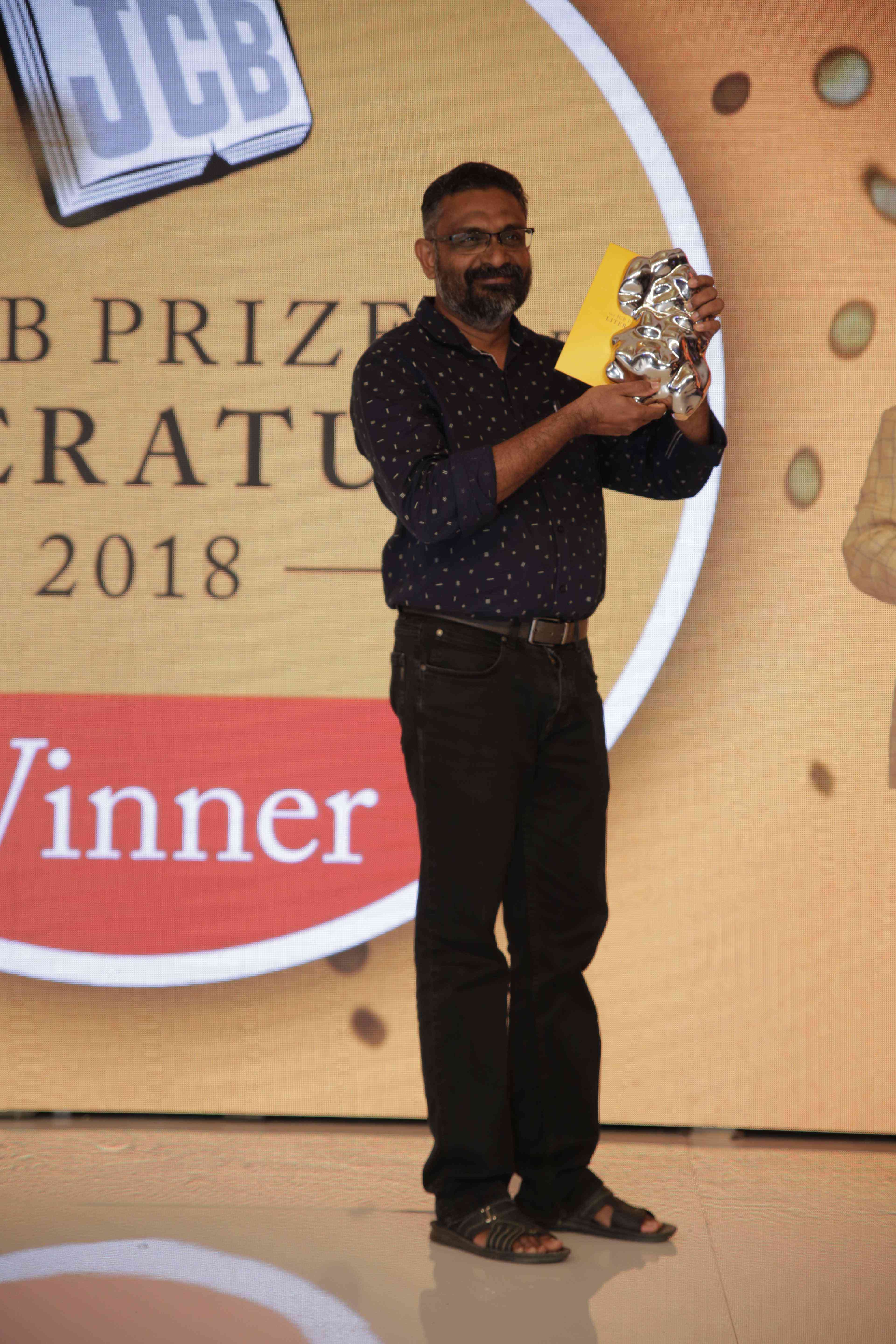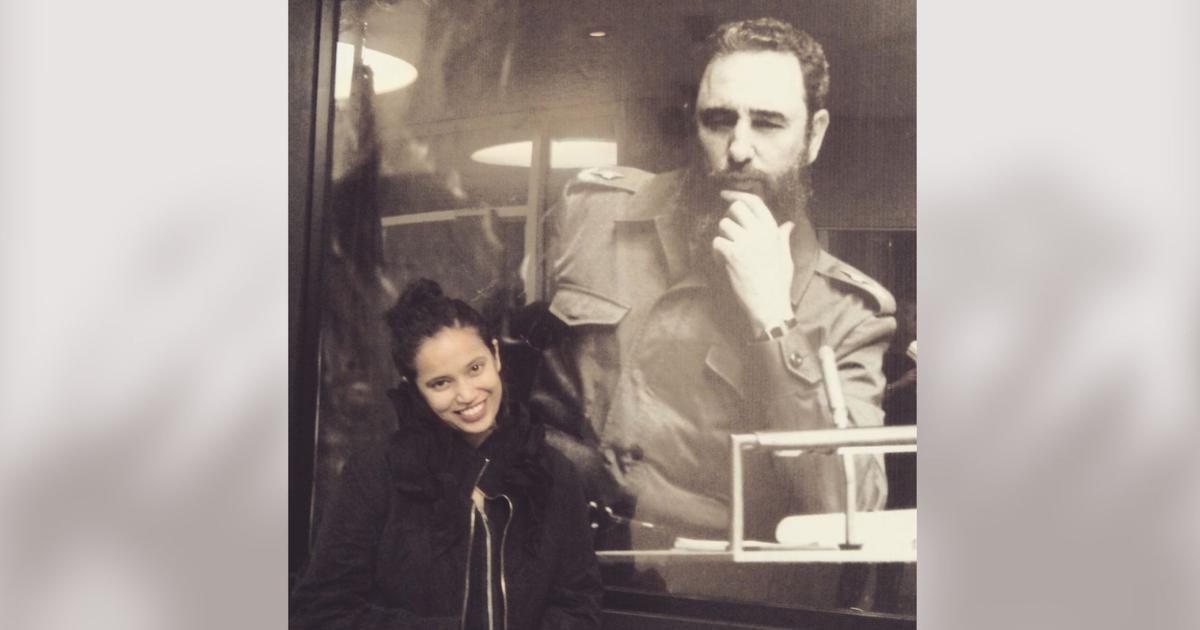KERALA / Brooklyn, New York, U.S.A :
Before and after: What translating Benyamin’s ‘Jasmine Days’ involved, and what it means after winning the prize
Shahnaz Habib has hit the proverbial jackpot at the very beginning of her career as a literary translator. Her debut translation, of Benyamin’s Jasmine Days, has won the Rs 25-lakh JCB Prize for Literature in its inaugural year. Habib, who has also translated Al-Arabian Novel Factory,the companion piece to Jasmine Days, has picked up Rs 5 lakh for the winning translation.
Habib wrote recently about the experience of being a first-time literary translator for a novelist whose previous work is highly respected – Benyamin’s Goat Days, for instance, shot to fame in 2012 – and about being a woman in what is still a male-dominated literary culture. She spoke to Scroll.in thereafter in two instalments – before and after winning the JCB Prize – about what drew her to the novel, her procrastinating habits, the differences between Malayalam and English, the migrations that aren’t covered enough, the fears of a first-time translator, and the Agatha Christie-inspired novel she’s currently writing. Excerpts from the interview:
What does Jasmine Days winning the JCB Prize mean to you?
So, to state the obvious, I am super thrilled. And I feel especially happy for Benyamin, who deserves this recognition so much. Jasmine Days is about a young woman who writes a book without knowing that she is writing a book and I feel a bit like she must have when she realised how much her words resonated with people outside her life.
But…there’s also this feeling of strangeness. I think most of us who work with words are so steeled for rejection and killing your darlings that it feels bizarre to win something! It’s also a win for translation in general and that makes me hopeful as a translator and excited as a reader of translations.
What would some of your suggestions be to other literary prizes when it comes to translations (and other forms of writing that they may be neglecting)?
Prizes are wonderful, but I wish we had more grants to encourage all kinds of writing and translation. By that, I mean support for writers and translators and poets so that they can set aside the time to work on projects before they are published. So much energy and struggle goes into the writing process itself and a writing grant can help a writer be more adventurous, take on a translation project that might be financially unfeasible, write essays that may not have mainstream appeal. And we need this now, more than ever.
In a recent essay for Scroll.in, you wrote about the distance between intended meanings and actual meanings – a father in Jasmine Days accidentally gifts his daughter a Christmas card on her birthday. Can you talk to us a little more about this distance? Particularly as it applies to translation within our daily lives?
In India, where many of us negotiate multiple languages daily – one language for work, another at home, a third on the street – we are much more involved in translation on a daily basis than in more linguistically homogeneous places. But even beyond that, at the risk of sounding esoteric, there’s a way in which translation is inherent in all communication. Even when there isn’t a language gap, there might be other gaps – the very different experiences of various generations, genders, sexual orientations, social classes, religions. Brothers and sisters growing up in the same family might need “translation” because their experiences are completely different. Sometimes the gaps come up suddenly in places where we don’t expect them and the friction between the intimacy of the relationship and the gap can be especially painful – that’s what the father and daughter in Jasmine Days find out.
What drew you to Jasmine Days?
I was very intrigued by the narrator – this feisty, funny, talkative young woman who manages to hold her own and even be subversive while living in a household ruled by men. I was also very drawn to the City, the unnamed West Asian city where the novel takes place. Like most Malayalis, I have family in the Gulf states and have always been curious about the many dimensions of migrant life there, how the different diasporas interact with each other, the question of how much you can belong. There is such a great body of American immigrant narratives, but I don’t think we have enough stories about these other migrations.
What are some of your first steps when you begin a translation project?
I light a white candle and wear all white clothes…just kidding! I begin by reading the book, usually way too close to the deadline, making margin notes on tricky passages or words that I don’t understand fully. I love reading the printed version but when I begin the page-by-page translation process, I also try to source a digital copy of the book manuscript because I find it easier to toggle between two documents on my laptop (as opposed to switching between book and laptop).
As a translator, how do you approach the cultural nuances in a story like Jasmine Days? Sunni and Shia Muslim identities, gender, the reality of being an immigrant in the Gulf. Did you draw on your own knowledge of friends and others in the Gulf when you went about choosing a specific word, phrase, dialogue in English?
I didn’t really encounter any dilemmas around the cultural nuances of Sunni and Shia Muslim identities, gender, the reality of being an immigrant in the Gulf – because I am following Benyamin’s lead with all that. I am not reinterpreting the story he wrote in any way. As for choosing specific words or pieces of dialogue, what helped me most was thinking of the young women I know and how they find their identity and power while surrounded by people who want to keep them sheltered.
Jasmine Days is your first foray into literary translation. Were you concerned about how it would be received?
Definitely. At some point during the translation, I was reading Helen Weinzweig’s Basic Black with Pearls, and the protagonist is on an airplane feeling claustrophobic and says, “I am prepared for disaster in two languages.” I felt an immediate recognition! In all fairness, I had very supportive and reassuring editors, so I didn’t worry too much. But if I know Malayalis, I am sure there are at least a few who have made notes in the margins and who will corner me next time I am in Kerala to tell me how I could have done a better job!

Can you talk to us a little about the process of building a bridge between Malayalam and English? What is the relationship between the two languages like?
Beyond the power structures, there are also linguistic structures. Malayalam is agglutinative, so you can have long sentences packed with ideas, whereas in English those long sentences would be awkward and unwieldy. But English also has more words – it has had the opportunity to shop for words in a way that Malayalam has not. There were also some concepts that just didn’t travel well in a literal translation. I’ll give you an example – in Jasmine Days, during the protests, a Malayali man on social media says something that literally translates as “We are people who take care of ourselves, so we are safe.” In Malayalam, he is criticising his fellow Malayalis. The speaker is making a point about the innate selfishness of the Malayali who will look out for himself. The implication is that we take care of ourselves, instead of taking care of others. In English, what was a slightly melancholy, reproachful sentence actually ends up sounding like a compliment or a boast – we are an independent people, we are good at dealing with problems, we are safe. Ironically, this gap in the meaning indicates the community-centredness of a culture where taking care of ourselves first is a small crime. So, I translated it as: “We know how to look out for ourselves.”
Who are some of the translators whose work you admire?
Too many to name – especially since we read so many books without even realising they are translated. As someone who cannot write poetry but wishes she could, I am especially intrigued by Elizabeth Bishop, whose poetry owes much to her translation from multiple languages. Right now, I am loving reading Don’t Want Caste: Malayalam Stories by Dalit Writers, edited by MR Renukumar and translated by Abhirami Girija Sriram and N Ravi Shanker.
Are there texts on translation that have stayed with you?
My favourite text on translation right now is The Ben Vaughn Quintet’s Piece de Resistance song.
The translator Jessica Moore wrote about how she wrote a book of poems as she translated a poetic novel using “translated phrases as leaping-off points for my own pieces.” Does that happen to you, that as you translate you find yourself devising a new piece of writing?
Not yet. I am only two books deep into translation, so I don’t have that kind of bandwidth yet.
What are you currently working on?
A novel. There’s this Indian cook on an archaeological dig in Agatha Christie’s Murder in Mesopotamia. I have been thinking about how he got there, and it is turning into a novel.
source: http://www.scroll.in / Scroll.in / Home> Meet the Translator / by Urvashi Bahagunu / October 27th, 2018









